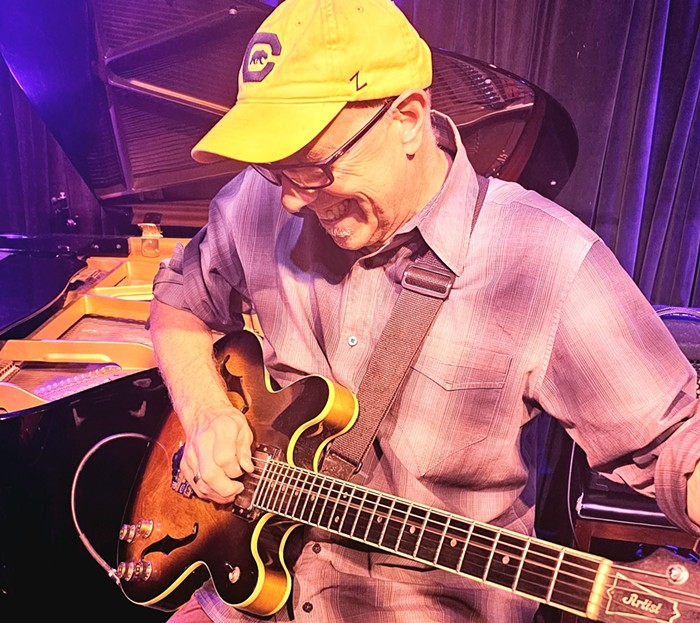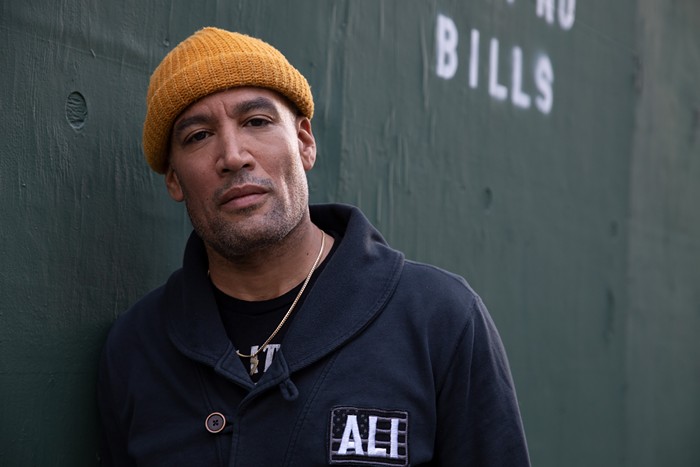ESMÉ PATTERSON ends one year and begins another during a seven-night residency at Al's Den.
She's taking the "residency" part literally. Patterson will stay at the Crystal Hotel during the run, and she has set a task for herself: Write a new song each day about one of Earth's largest bodies of water, and then play it that night.
"We've been on tour for two months and we really don't have the time and space and energy to be creative, and so I feel like there's a lot bottled up," Patterson says. "Selfishly, it would just feel really good to me to have that challenge and that structure, because when you're staring at a blank page, it can become a complete void that will swallow you."
The year that ends in the middle of Patterson's Sunday-to-Saturday residency has been one of "big changes," she says. She released her second solo album, Woman to Woman, in the spring; left Paper Bird, the successful Denver roots-pop band she's toured and made records with for the past seven years; and moved to Portland.
Patterson's rising profile as a solo artist necessitated the split from Paper Bird. Woman to Woman came out in April and was met with not only solid reviews, but also kudos for its clever concept: Patterson penned seven tunes from the perspective of the female characters in famous songs. For example, her "Valentine" gives voice to "Alison" from the Elvis Costello song, "Never Chase a Man" gives voice to "Jolene" by Dolly Parton, "Bluebird" gives voice to the Beatles' "Eleanor Rigby," and so on. Elsewhere, Patterson's songs address the Beach Boys, the Band, Leadbelly, and Townes Van Zandt. Three more songs—Michael Jackson's "Billie Jean," the Kinks' "Lola," and Bob Dylan's "To Ramona"—will appear on the album's European release in February.
Each is delivered in Patterson's understated, charismatic style, where sprightly folk, shambling pop, and her distinctive lilt nestle together. Lyrically, the songs tend to be defiant in different ways. "I'll put on a dress and I'll take off a dress whenever I want," Patterson sings with sass in "Valentine." In "The Glow," she responds to Brian Wilson's "Caroline, No" with quiet elegance: "I cut off my long hair, turned the glow inside. All that lives must die. You're crying for what you can't keep."
Patterson got the idea for Woman to Woman while learning Van Zandt's "Loretta," an ode to a "barroom girl" who doesn't cry when the song's protagonist takes off for the next town, "least not 'til she's all alone." She decided Loretta needed her own song, and she started searching for other female archetypes in pop songs to write about.
"I got to look really closely at songs I had heard a million times and really find out what they were actually saying," she says. "I was so surprised how unbalanced a lot of these famous songs are and how the perspective is really twisted in this strange way. I thought the stories were so one-sided and left a lot of room for another perspective."
Patterson, too, welcomed the different perspective. Her solo debut, 2012's All Princes, I, was "really autobiographical, to a fault, probably," she says. It also revolved around a crumbling relationship. So the opportunity to get outside her own head was one Patterson embraced.
"To be asked questions about my philosophy on gender equality and my ideas about the sacredness of art were way more interesting questions that I wanted to answer than, like, 'How hard was that breakup that made you write all those breakup songs?'" she says with a chuckle. "Yeah, I'd much rather talk about actual art."



















